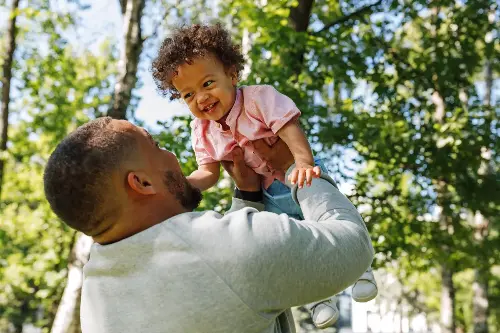The journey from infancy through to the toddler years is one of profound growth and development. During this critical time, your child progresses from being entirely dependent, communicating solely through cries and coos, to a walking, talking individual with his or her own distinct personality. As your little one transitions from nappies to dialogue, the relationship between parent and child undergoes significant changes, and it's essential to navigate these with love, patience, and a set of effective communication techniques.

Understanding the importance of these early years—it's worth acknowledging that language development is a cornerstone of your toddler's growth. As language blossoms, toddlers understand and interact with the world around them with ever-increasing complexity. This is where meaningful communication techniques come into play, helping to shape not only how they speak and understand but also how they manage emotions and develop social skills.
To build a strong foundation for a positive relationship with your toddler, it's vital to focus on love and patience. Love, in all its forms, reassures your child of their value and security. Patience allows you to give your child the time they need to express themselves without rushing or dismissing them. It's essential to remember that what might seem trivial to an adult could be incredibly important in a toddler’s world.
Meaningful communication with toddlers often involves getting down to their level—both physically and metaphorically. Squat or sit down so you’re face-to-face; this not only minimises the physical barriers between you but also provides comfort and focused attention to your child. Using simple, clear language and maintaining eye contact lets your child know that you are actively engaged in the conversation.
Active listening is a cornerstone of meaningful dialogue. When your toddler speaks, give them your full attention and show interest in their stories. This involves not just hearing the words but understanding the feelings behind them. Empathise with their emotions, ask open-ended questions, and validate their thoughts. These responses encourage your child to share more and feel confident in their communication abilities.
Positive reinforcement is another key element. Celebrate your child's attempts to communicate, even if their sentences aren't perfect or their stories meander. This encouragement bolsters their self-esteem and reinforces their desire to interact. Encouraging your toddler with phrases like "Tell me more about that" or "I love hearing your stories" can have a profound impact on their social and linguistic development.
Consistency is vital for toddlers, as they thrive on routine and predictability. Ensure that the communication techniques you use are consistent; this doesn't mean you have to handle every situation the same way, but your overarching approach should provide a reliable framework for interaction.
As your toddler's language skills progress, you can incorporate more advanced communication strategies. Teach them about turning in conversations, the importance of body language, and the interpretations of tone and volume. Storytelling is a fantastic tool for this age group, not only to stretch their imagination but also to teach them narrative skills and the art of conversation.
When conflicts or challenges arise, as they invariably will, effective communication is your best asset. Approach each situation with empathy, acknowledging your child's feelings before guiding them towards resolution. Use clear and simple explanations for why certain behaviours might be unacceptable, and always offer alternatives. This not only helps manage the immediate situation but also teaches your child problem-solving skills for the future.
Remember, there will be moments of frustration—for both you and your toddler. At these times, always return to the core tenets of love and patience. Take a breath, offer a cuddle, and remember that every challenge is an opportunity for learning and growth. Consider each day a fresh chance to shape the language, behaviour, and emotional intelligence of your evolving toddler.
As parents, the transformation from nappies to dialogue is a journey that can be just as challenging as it is rewarding. By applying love, patience, and meaningful communication techniques, you can foster a relationship with your toddler that is not only warm and close but also sets the stage for a lifetime of healthy communication. The conversations you have today lay the groundwork for future discussions and the enduring bond you share.
